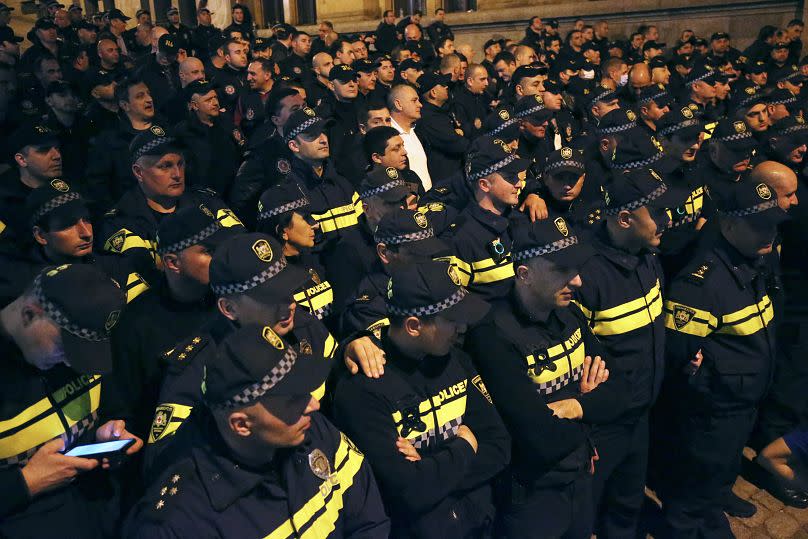Clashes and arrests at Georgia protest over so-called 'Russian law' proposals

- Oops!Something went wrong.Please try again later.
Georgian police used tear gas on Tuesday to disperse a large protest outside the parliament building against a proposed bill that would require media and non-profit organizations to register as foreign-influenced if they receive more than 20% of their funding from abroad.
Opponents of the proposal argue that it could derail Georgia's ambitions to become a member of the European Union and refer to it as "the Russian law," likening it to similar legislation in Moscow that targets and discredits independent media and organizations viewed as contrary to Kremlin interests.
The parliament debated the bill but put off voting on its first reading until Wednesday.
Several protesters were arrested during the confrontation with police, according to local media, but immediate figures on the number of detainees were not available.
The bill closely mirrors a proposal that the ruling party withdrew last year following major street protests.
It requires non-commercial organizations and news media receiving 20% or more of their funding from abroad to register as “pursuing the interests of a foreign power” - the only change in wording from the draft law withdrawn last year, which said that relevant groups must register as “agents of foreign influence.”

Georgia's President Salome Zourabichvili plans to veto the law if it is passed by parliament, according to her parliamentary representative Giorgi Mskhiladze. However, this veto may not hold for long, as Zourabichvili's term is set to expire this year. Under changes to Georgia's constitution, the next president will be appointed by an electoral college consisting of all parliament members.

